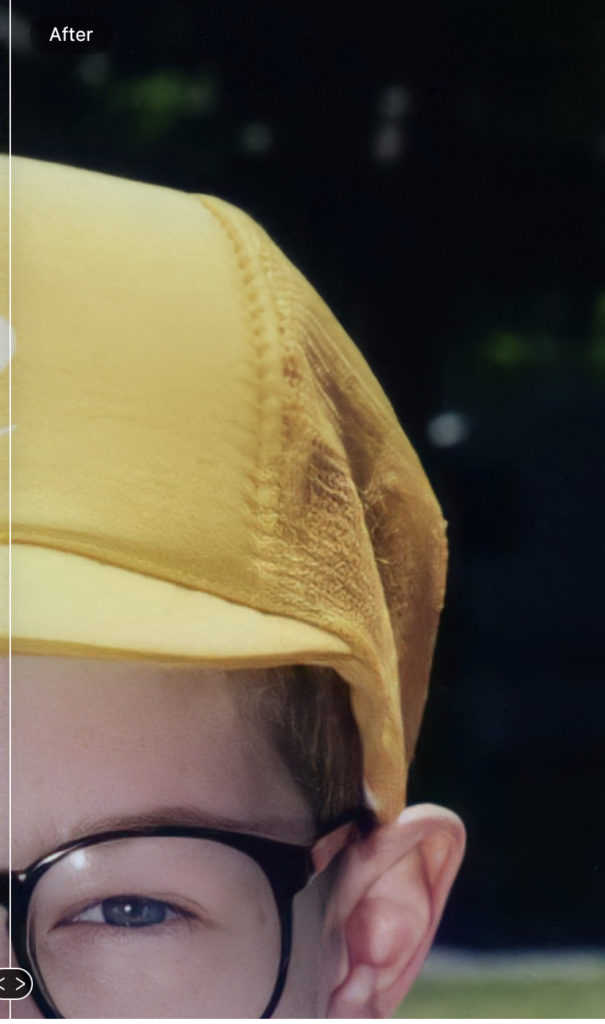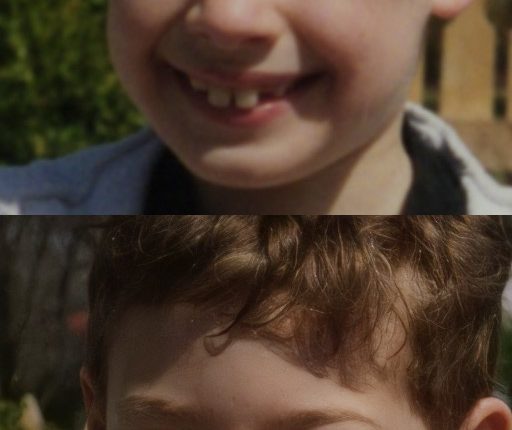When new technology comes out that can reveal hidden information or patterns, it’s exciting to me. I need to try it out fast, and see how it works.
One particular program fit this bill for me recently. Remini, an iPhone/Android app, uses a neural network to upscale faces in photographs where there is low resolution. I was aware of this technology by watching videos on research papers over the years, mostly ones sponsored by Nvidia, but I never thought it would get to be consumer-grade so quickly. When I first tried this out, I was both intrigued and horrified at the same time. Here’s an example of an image that I upscaled with it:

That is my parents in the 80s. It looks pretty detailed, right? This is the kicker: the original wasn’t even scanned in. It was sitting on a table, photographed from above:

It even worked with Polaroids and old Mac Photo Booth photos, where the detail on those is so poor that it just looks like there is something incredibly wrong when a face is perfect, and every other detail is ambiguous. Here’s another example – a close up of my face in the mid 1990s:

For the untrained eye, it works just fine. It may have done something weird with my right tooth, but it did a good job overall. If you have a photograph on the edge between detailed and not, that’s where Remini’s strong suit seems to be. If I were using this app in a professional workflow, I’d try and apply it as a layer mask for some more control. Sometimes it just fails on hair and patterns, like in this hat:


I don’t fault it for not being perfect like the reviewers in the App Store expect it to be. As more researchers publish papers improving the underlying algorithm, this process will get better. However, the potential for it to be another tool in a professional retoucher’s arsenal should not go unnoticed. In fact, Adode claims without it its newest version of Photoshop, it is now the world’s most advanced AI application for creatives, so programs like Remini are here to stay. There’s no doubt that professional retouching has hit the era of AI, and there will be many more interesting advancements to come to the public in the near future.
